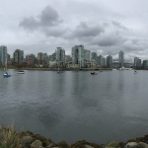Water Conversations: “Does living near water and greenness impact the mortality of Canadian urbanites?” with Paul Villeneuve
Water Conversations: “Does living near water and greenness impact the mortality of Canadian urbanites?” with Paul Villeneuve
Categories: Lectures and Seminars, Panel Discussions | Intended for Anyone

3235 Mackenzie
1125 Colonel By Dr, Ottawa, ON
Contact Information
Christiane Mineau, (613)520-2600 ext. 2516, christiane.mineau@carleton.ca
Registration
Cost
$0
About this Event
Host Organization: The Global Water Institute
More Information: Please click here for additional details.
The Global Water Institute (GWI) would like to invite you to the seventh installment of Water Conversations, our brown bag lunch series. These are informal talks that aim to introduce water researchers to each other, establish friendships, and help us to better understand the type of water research that Carleton faculty and students are undertaking so that we can collaborate better and successfully team up for larger projects. Please bring your lunch and we will serve the drinks and cookies.
This edition of Water Conversations is co-hosted by the Carleton’s Health Research Centre, the Canadian Health Adaptations, Innovations & Mobilization (CHAIM) Centre.
Our April speaker is Paul Villeneuve from the Department of Health Sciences at Carleton University. Dr. Villeneuve is both an epidemiologist and a biostatistician. He is an Affiliate Scientist at the Ontario Occupational Cancer Research Centre in Toronto, and an Associate Editor for Health Promotion and Chronic Disease Prevention in Canada. He is also a member of the Advisory Committee for the Canadian Health Adaptations, Innovations, and Mobilization (CHAIM) Centre at Carleton, and serves as a member of Carleton University’s Research Ethics Board.
Abstract: A number of epidemiological studies have shown that exposure to natural environments, such as green space, are associated with many health benefits. To date, few studies have looked at the potential link between living near water and mortality. We evaluated whether living near large, natural water features (e.g., lakes, rivers, coasts, “blue space”) as well as greenspace was associated with cause-specific mortality in a population-based cohort of non-immigrant, adults living in the 30 largest Canadian cities. Our cohort consisted of individuals who completed the mandatory 2001 Statistics Canada long-form census (1 in 5 households). These individuals were inked to the Canadian mortality database, and to annual income tax filings, through 2011. We estimated associations between living within 250 m of blue space and green space and several common causes of death. We adjusted models for many personal and contextual covariates, as well as for exposures to ambient air pollution. Our cohort included approximately 1·3 million subjects at baseline, 106,180 of whom died from non-accidental causes during follow-up. There were slight differences in sociodemographic characteristics between individuals living by water and not, but model point estimates changed only slightly with the inclusion of a comprehensive set of confounding factors. We reduced risks of mortality in the range of 12-17% associated with living within 250 m of water compared to living further away, among all causes of death examined, except with external/accidental causes. Similar inverse associations were noted for measures of greenness. Our findings suggest that living near nature has important benefits to health, but further work is needed to better understand the drivers of this association.
Register For this Event
30 spaces capacity, 30 spot(s) left.